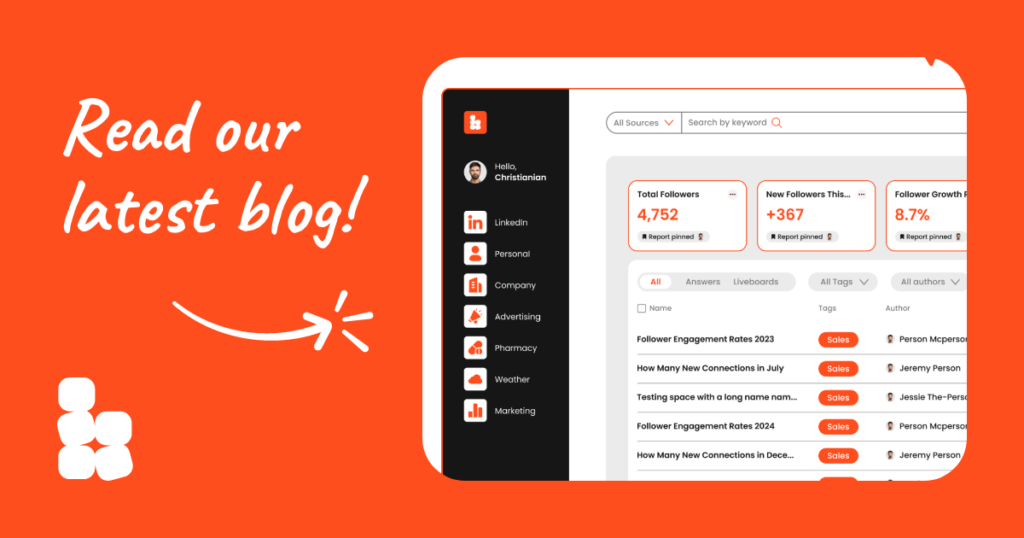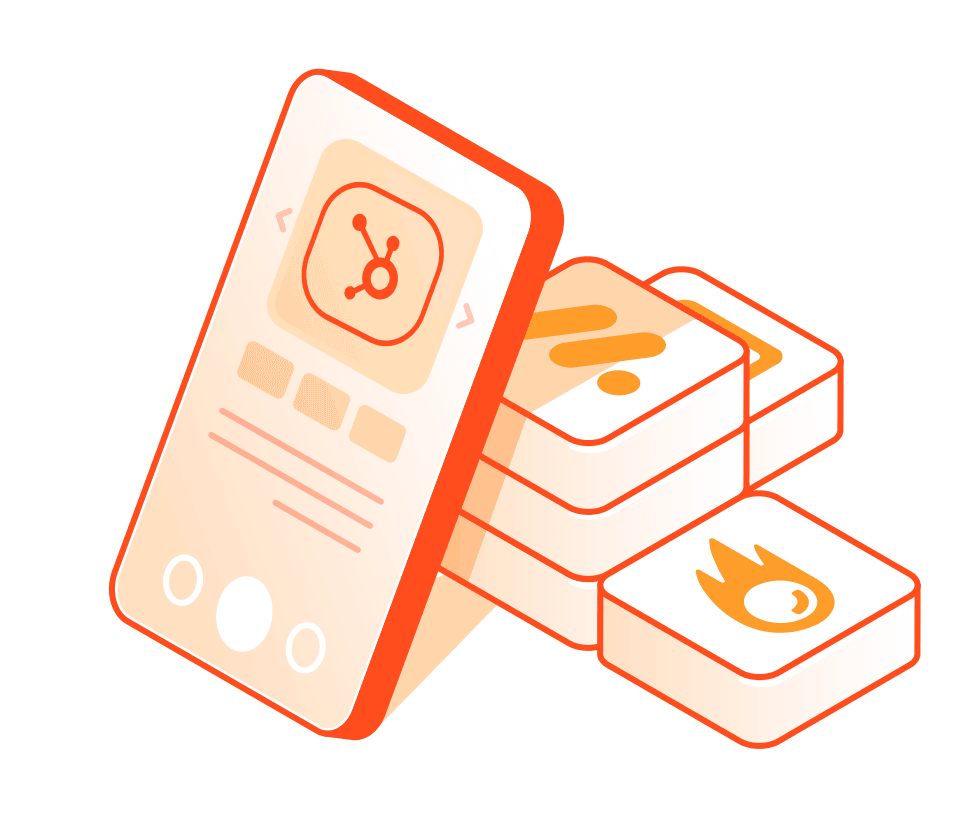Marketing channels are integral to any business's success.
Think of them as avenues that your business can use to get products and services to your customers.
They can be traditional or digital, but they must help you to reach your target audience. Now you’re probably wondering why Bundle cares so much about marketing channels, while we’re busy wondering why you don’t…
Understanding Marketing Channels
Marketing channels, sometimes called distribution channels, guide a product or service’s path from the production point to the final customer. It consists of all the actors and entities responsible for getting a product from the producer to the end-user, whether that’s manufacturers, wholesalers, retailers, or even agents who help businesses sell their products.
Importance of Marketing Channels
Without strong marketing channels, the ability to distribute your products and services to the right audience are greatly diminished. So how do businesses use them to boost sales, increase profits, and reach their target audience efficiently?
The easiest way to describe it is that they are used to build lasting relationships with customers, providing the right information that helps the customer to make an informed purchasing decision. You can build trust and loyalty that ensures repeat business and referrals if done correctly. Just think: how many times have you made a purchasing decision based on the recommendation of a friend, family member or colleague?
Types of Marketing Channels
Marketing channels can be categorised into traditional and digital channels.
Traditional marketing channels include television, radio, podcast, print, and outdoor advertising. These channels have been around for many years and are still used by businesses today to reach their target audience.
Digital marketing channels, on the other hand, include social media, email marketing, search engine optimisation, and pay-per-click advertising. These channels have become increasingly popular in recent years, as more and more people use the internet to search for products and services.
Today’s businesses must use traditional and digital marketing channels to reach their target audience effectively. Businesses can maximise their reach and increase their chances of success by using a mix of marketing channels.
Let’s take a closer look at each of the categories we mentioned:
Traditional marketing channels
Traditional marketing channels refer to any marketing strategy that does not involve digital media. These channels have been in use since time immemorial. Let’s break down each of the main channels:
Print Advertising
Print advertising refers to any form of print media, such as newspapers, magazines, brochures, and pamphlets, that businesses use to market their products or services.
It’s a classic marketing strategy that has been in use for centuries. In the early days, print advertising was limited to newspapers, but with the advent of technology, businesses can now use digital printing to create high-quality brochures and pamphlets. Print advertising is targeted, and businesses can use it to focus on specific demographics and regions. This type of marketing is still effective today, as many people still enjoy reading newspapers and magazines.
Broadcast Advertising
Broadcast advertising involves using radio, television, podcasts, and other electronic media to promote products and services. These channels are widespread, and businesses can reach a large audience. Broadcast advertising is costly compared to other marketing channels, but it effectively reaches a mass audience.
Television commercials, for example, can create brand awareness and promote new products or services. The widespread popularity of podcasts in recent years has made them a great choice for speaking directly to an engaged audience.
Direct Mail
Direct mail involves sending marketing materials such as brochures, pamphlets, or letters to potential customers through the post. Have you ever opened a free newspaper and almost drowned in leaflets? That’s direct mail.
It’s a targeted marketing channel allowing businesses to focus on specific regions and demographics. It’s often used for local presence or when your audience isn’t accessible through more digital channels.
Telemarketing
Businesses can reach potential customers through cold calling or a pre-existing customer database. Telemarketing is a direct marketing channel that allows businesses to gauge customers’ reactions immediately – nothing says your customer isn’t interested like being told to F off while having the phone slammed down on you.
Telemarketing can be an effective way to generate leads and make sales, but it takes a special kind of salesperson to generate success from it. There’s a fine line between informative and annoying, so remember to use telemarketing sparingly and ensure that you are targeting the right audience.
Digital Marketing Channels
Digital marketing channels refer to any strategies that involve electronic media. Digital marketing channels are prevalent in modern businesses because many people spend most of their time online. Digital marketing channels include:
Social Media Marketing
Social media marketing involves using social media platforms like Facebook, Twitter, LinkedIn, TikTok, and Instagram to market products and services. Social media marketing is effective because businesses can target specific audience demographics and regions.
For example, a clothing brand targeting young adults can use TikTok to showcase its products using influencers with a large following among millennials. This strategy can help the brand reach a wider audience and increase sales.
Email Marketing
Email marketing involves sending marketing materials to potential customers through email. Lists can be organically grown through website signups or newsletter promotion or bought from third-party vendors.
While this may seem like a quick and easy way to collate a list of prospective customers, don’t be fooled. The likelihood of the contacts being interested in your product or service is low, especially when you consider they’ve never heard of your company before.
Businesses should personalise their email marketing campaigns by segmenting their email lists based on customers’ interests and behaviours. This can increase the campaign’s effectiveness and lead to higher conversion rates.
Content Marketing
Content marketing refers to any marketing strategy that involves creating and sharing informative, educational, and engaging content such as blog posts, videos, and infographics. Content marketing is effective because it builds trust and loyalty among potential customers.
For example, a company selling pet products can create a blog that provides pet care tips and advice. This can help the company establish itself as an expert in the pet care industry and build trust among potential customers.
Search Engine Optimisation (SEO)
SEO optimises a website or web pages to get higher organic traffic from Search Engine Results Pages (SERPs). SEO is a cost-effective strategy that helps businesses to increase their website’s visibility, drive traffic, and generate leads.
Businesses can optimise their website by using relevant keywords, creating high-quality content, and improving user experience. This can help the website rank higher in search engine results pages and attract more organic traffic.
Pay-per-click (PPC) Advertising
PPC involves paying for clicks from potential customers who visit the business’s website or platform. Businesses can place ads on search engine results pages (SERPs) or social media platforms. PPC advertising is effective because businesses can target specific demographics and regions.
For example, a hotel chain may use PPC advertising to target customers searching for trips in the local area.
Companies also use PPC advertising to target their competitors’ audiences. A good example of this is searching for a famous pizza brand and seeing how many of its competitors show up in the paid ad positions.
Which Marketing Channel Works Best?
Choosing the right marketing channel will depend on your budget, target audience, and marketing goals. Depending on your product or service, you may have more success using a combination of both digital and traditional marketing channels.
Above all else, you need to be creative and unique in your approach to stand out from the competition and capture your target audience’s attention.
But once you’ve chosen a channel, how do you track its success? We’ve answered that in our article – Tracking is the Key to Marketing Channel Success.
If you’re still unsure of which channel is best for your business, talk to the team and we can help you determine the right channel and set up tracking and insights to guarantee success.






